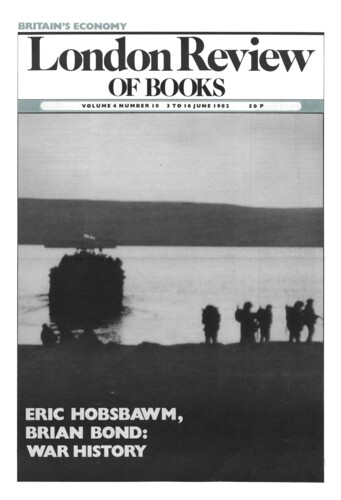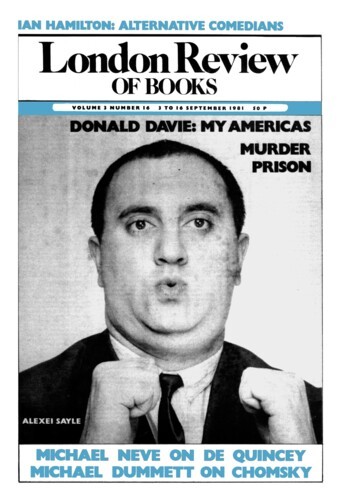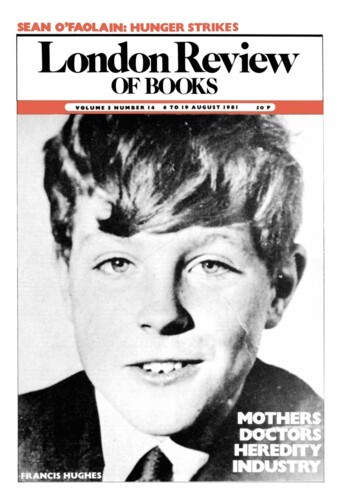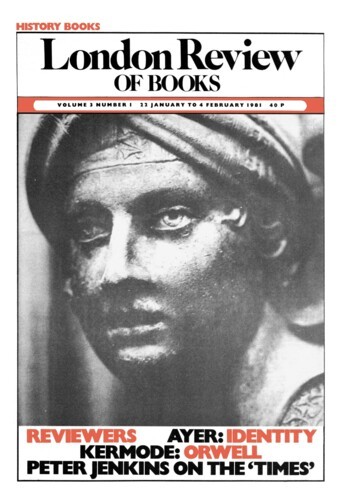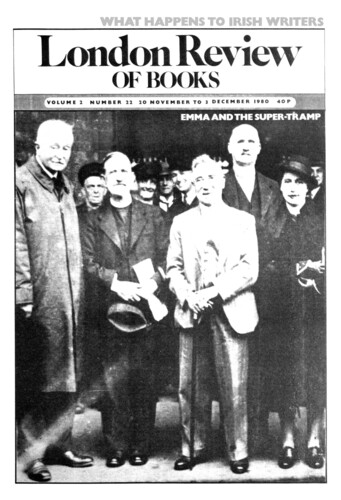Diary: Conflict of Two Egos
Karl Miller, 3 June 1982
After a preliminary bombardment, a party of Conservative politicians has assaulted the BBC, enraged by its treatment of the Falklands crisis. Fierce fighting took place, but there was no loss of life, as a Ministry of Defence spokesman sepulchrally confirmed.
